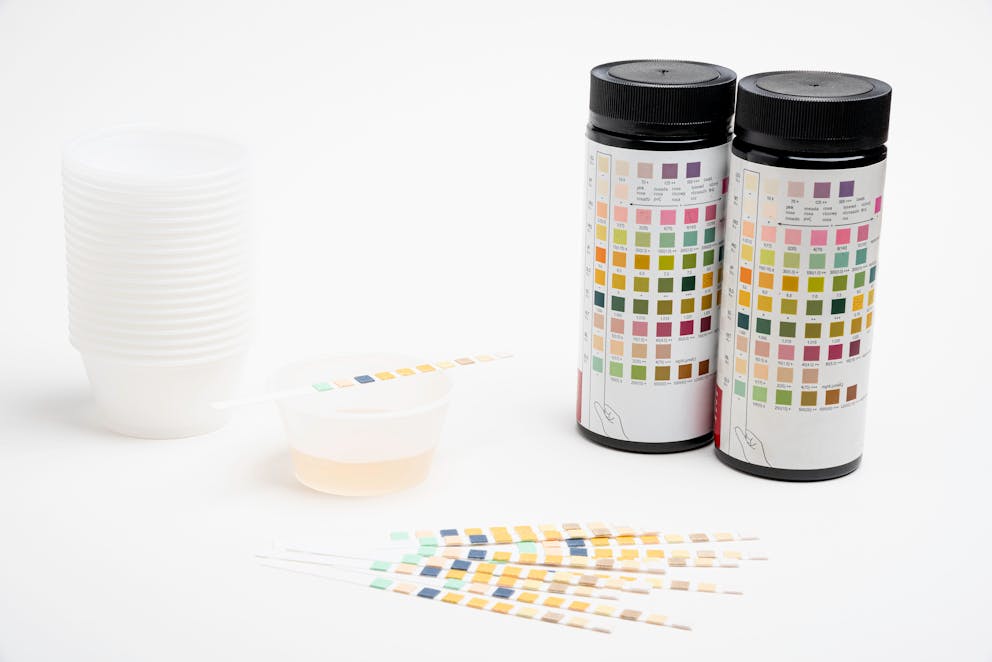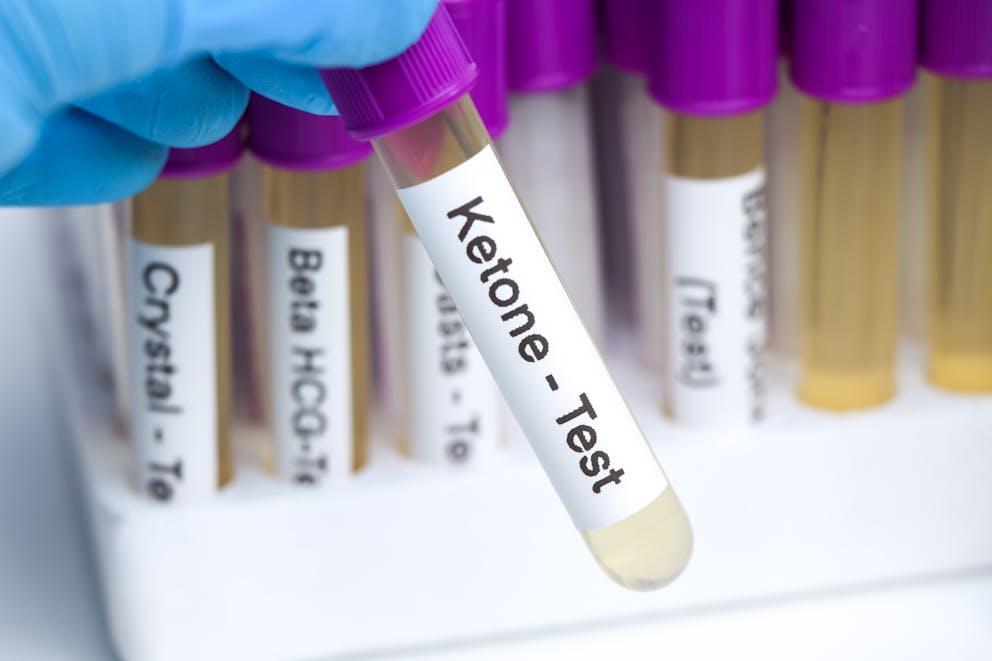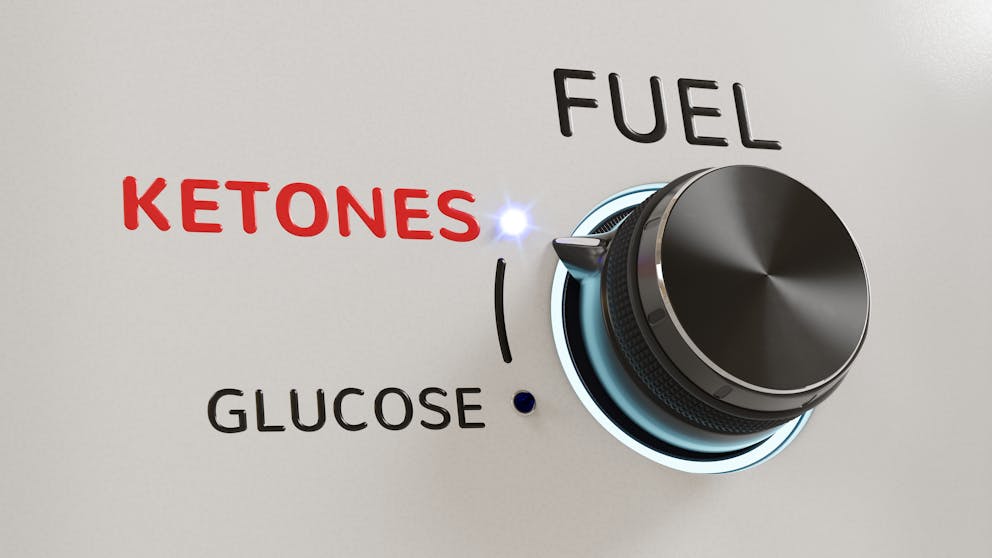Low or No Ketones in Urine While on Keto—Why?

Keto Strategy Tips
Expert advice on maintaining a successful keto lifestyle
Learn simple strategies to overcome common challenges and stay on track
Stay motivated with tips and techniques to keep you focused on your keto journey
Practical cutout wallet guide for quick reference on keto-friendly choices and strategies

Keto Strategy Tips
Expert advice on maintaining a successful keto lifestyle
Learn simple strategies to overcome common challenges and stay on track
Stay motivated with tips and techniques to keep you focused on your keto journey
Practical cutout wallet guide for quick reference on keto-friendly choices and strategies

Keto Strategy Tips
Expert advice on maintaining a successful keto lifestyle
Learn simple strategies to overcome common challenges and stay on track
Stay motivated with tips and techniques to keep you focused on your keto journey
Practical cutout wallet guide for quick reference on keto-friendly choices and strategies

Keto Strategy Tips
Expert advice on maintaining a successful keto lifestyle
Learn simple strategies to overcome common challenges and stay on track
Stay motivated with tips and techniques to keep you focused on your keto journey
Practical cutout wallet guide for quick reference on keto-friendly choices and strategies

Keto Strategy Tips
Expert advice on maintaining a successful keto lifestyle
Learn simple strategies to overcome common challenges and stay on track
Stay motivated with tips and techniques to keep you focused on your keto journey
Practical cutout wallet guide for quick reference on keto-friendly choices and strategies

Keto Strategy Tips
Expert advice on maintaining a successful keto lifestyle
Learn simple strategies to overcome common challenges and stay on track
Stay motivated with tips and techniques to keep you focused on your keto journey
Practical cutout wallet guide for quick reference on keto-friendly choices and strategies

Keto Strategy Tips
Expert advice on maintaining a successful keto lifestyle
Learn simple strategies to overcome common challenges and stay on track
Stay motivated with tips and techniques to keep you focused on your keto journey
Practical cutout wallet guide for quick reference on keto-friendly choices and strategies

Keto Strategy Tips
Expert advice on maintaining a successful keto lifestyle
Learn simple strategies to overcome common challenges and stay on track
Stay motivated with tips and techniques to keep you focused on your keto journey
Practical cutout wallet guide for quick reference on keto-friendly choices and strategies

Keto Strategy Tips
Expert advice on maintaining a successful keto lifestyle
Learn simple strategies to overcome common challenges and stay on track
Stay motivated with tips and techniques to keep you focused on your keto journey
Practical cutout wallet guide for quick reference on keto-friendly choices and strategies

Keto Strategy Tips
Expert advice on maintaining a successful keto lifestyle
Learn simple strategies to overcome common challenges and stay on track
Stay motivated with tips and techniques to keep you focused on your keto journey
Practical cutout wallet guide for quick reference on keto-friendly choices and strategies

Keto Strategy Tips
Expert advice on maintaining a successful keto lifestyle
Learn simple strategies to overcome common challenges and stay on track
Stay motivated with tips and techniques to keep you focused on your keto journey
Practical cutout wallet guide for quick reference on keto-friendly choices and strategies

Keto Strategy Tips
Expert advice on maintaining a successful keto lifestyle
Learn simple strategies to overcome common challenges and stay on track
Stay motivated with tips and techniques to keep you focused on your keto journey
Practical cutout wallet guide for quick reference on keto-friendly choices and strategies

Keto Strategy Tips
Expert advice on maintaining a successful keto lifestyle
Learn simple strategies to overcome common challenges and stay on track
Stay motivated with tips and techniques to keep you focused on your keto journey
Practical cutout wallet guide for quick reference on keto-friendly choices and strategies

How Does Intermittent Fasting Work?
Understand the science behind intermittent fasting and its health benefits
Learn how fasting impacts metabolism, insulin sensitivity, and hormonal balance
Discover the four stages of intermittent fasting
Get practical tips for integrating fasting into your daily routine

How Does Intermittent Fasting Work?
Understand the science behind intermittent fasting and its health benefits
Learn how fasting impacts metabolism, insulin sensitivity, and hormonal balance
Discover the four stages of intermittent fasting
Get practical tips for integrating fasting into your daily routine

How Does Intermittent Fasting Work?
Understand the science behind intermittent fasting and its health benefits
Learn how fasting impacts metabolism, insulin sensitivity, and hormonal balance
Discover the four stages of intermittent fasting
Get practical tips for integrating fasting into your daily routine

How Does Intermittent Fasting Work?
Understand the science behind intermittent fasting and its health benefits
Learn how fasting impacts metabolism, insulin sensitivity, and hormonal balance
Discover the four stages of intermittent fasting
Get practical tips for integrating fasting into your daily routine

How Does Intermittent Fasting Work?
Understand the science behind intermittent fasting and its health benefits
Learn how fasting impacts metabolism, insulin sensitivity, and hormonal balance
Discover the four stages of intermittent fasting
Get practical tips for integrating fasting into your daily routine

How Does Intermittent Fasting Work?
Understand the science behind intermittent fasting and its health benefits
Learn how fasting impacts metabolism, insulin sensitivity, and hormonal balance
Discover the four stages of intermittent fasting
Get practical tips for integrating fasting into your daily routine

How Does Intermittent Fasting Work?
Understand the science behind intermittent fasting and its health benefits
Learn how fasting impacts metabolism, insulin sensitivity, and hormonal balance
Discover the four stages of intermittent fasting
Get practical tips for integrating fasting into your daily routine

How Does Intermittent Fasting Work?
Understand the science behind intermittent fasting and its health benefits
Learn how fasting impacts metabolism, insulin sensitivity, and hormonal balance
Discover the four stages of intermittent fasting
Get practical tips for integrating fasting into your daily routine

How Does Intermittent Fasting Work?
Understand the science behind intermittent fasting and its health benefits
Learn how fasting impacts metabolism, insulin sensitivity, and hormonal balance
Discover the four stages of intermittent fasting
Get practical tips for integrating fasting into your daily routine

How Does Intermittent Fasting Work?
Understand the science behind intermittent fasting and its health benefits
Learn how fasting impacts metabolism, insulin sensitivity, and hormonal balance
Discover the four stages of intermittent fasting
Get practical tips for integrating fasting into your daily routine

How Does Intermittent Fasting Work?
Understand the science behind intermittent fasting and its health benefits
Learn how fasting impacts metabolism, insulin sensitivity, and hormonal balance
Discover the four stages of intermittent fasting
Get practical tips for integrating fasting into your daily routine

How Does Intermittent Fasting Work?
Understand the science behind intermittent fasting and its health benefits
Learn how fasting impacts metabolism, insulin sensitivity, and hormonal balance
Discover the four stages of intermittent fasting
Get practical tips for integrating fasting into your daily routine

How Does Intermittent Fasting Work?
Understand the science behind intermittent fasting and its health benefits
Learn how fasting impacts metabolism, insulin sensitivity, and hormonal balance
Discover the four stages of intermittent fasting
Get practical tips for integrating fasting into your daily routine
It can be confusing to find that you have low or no ketones in your urine after diligently following the keto diet for months. Does this mean you’re not in ketosis? Not necessarily.
Find out why you may be getting negative results with ketone test kits and discover nine easy ways to determine if you’re truly in ketosis.

What are ketones?
During ketosis, your body uses ketones as the primary energy source—but what are ketones?
Ketones are a by-product of fat burning and a highly efficient alternative fuel to glucose that offers a wide range of health benefits for your body.
Ketosis is triggered by restricting carbohydrates, and you need to follow a ketogenic diet for your body to burn fat and generate ketones.
There are three different types of ketones, including acetate, acetoacetate, and beta-hydroxybutyrate.
As your cells adapt from burning sugar to utilizing fat, your body begins to convert acetoacetate to beta-hydroxybutyrate.
Most ketone urine tests only measure acetoacetate, which explains why these test kits aren’t always accurately detecting ketones in urine as you become keto-adapted.

How are ketones tested?
One of the most convenient ways to test for ketones at home is using a ketone urine test, which involves collecting a urine sample and testing the ketone bodies using a test strip.
Ketone levels can also be detected through a ketone breath test. Urine tests and breath tests tend to be accurate during the early phases of keto, but can sometimes produce a negative test result when your body has become fully adapted to using ketones as an energy source.
When you first start keto, your body isn’t very effective in metabolizing ketones and releases excess acetoacetate through the breath and urine, which can be easily measured.
When your body begins to burn ketones more efficiently, ketone testing isn’t very reliable because there are insufficient concentrations of ketones in the breath or urine to provide accurate measurements.
Alternatively, blood ketones can be assessed with laboratory blood tests, which are very accurate, but also more expensive.
Watch the video below to discover why a ketone test may not detect ketones despite being in ketosis.
Low or no ketones in urine while on keto—why?
1. You’re efficient at burning ketones
After a few months on the keto diet, your body starts to burn fat more efficiently, leaving very few ketones in your urine.
If you’re using all of your ketones for energy, they won’t show up on urine test strips.
2. You’re not doing intermittent fasting
If you’re on a ketogenic diet but still eat or snack frequently, you may not generate enough ketones. Every time you eat, your insulin level rises, which can impact fat-burning and lower your ketone levels.
3. You’re not getting enough sleep
Your body needs at least 7 to 8 hours of sleep to maximize fat-burning and ketosis.
Try getting to bed earlier or taking a nap, and consider using natural sleep aids such as calcium lactate, or magnesium if you have trouble falling asleep.
4. You’re exercising too close to a meal
If you are practicing intermittent fasting, try working out while fasting rather than during your eating window.
During fasting periods, your body has to rely on stored body fat for energy, which boosts fat-burning and ketone production.

How to know if you're in ketosis without a test
You don’t always need a blood or urine test to determine if you’re in ketosis. There are clear signs of ketosis—you just need to know what to look for.
Nine signs of ketosis
1. No keto transition symptoms
Keto flu, keto fatigue, and keto rash can sometimes occur during the keto adaptation phase.
If you don’t experience these symptoms and you’ve been on a ketogenic diet for a few days, you’re likely already in ketosis.
2. Rapid weight loss
If you’ve been on a high-carb diet for some time, your body stores glucose, which is bound to water.
Losing a significant amount of water weight when starting keto is a good sign that you’re in ketosis.
3. Clothes are looser around your midsection
When you get into ketosis, you start burning the visceral fat that surrounds your vital organs, which explains why keto helps you lose belly fat fast.
4. Increased energy
When you’re in ketosis, you may feel more energized—even while fasting.
Fat contains twice as much energy as carbohydrates, and body fat offers a readily available energy source even when you aren’t eating.
5. Boost in cognitive function
Ketones protect and improve neuronal function and help maintain their myelin sheaths. When you get into ketosis, you may notice better memory, focus, and attention.

6. Decrease in inflammation and pain
Ketones are anti-inflammatory molecules, and many people notice improvements in inflammatory conditions such as autoimmune disorders or arthritis once they enter ketosis.
7. You feel satisfied after eating
When you’re dealing with insulin resistance, it’s typically not due to a lack of insulin. Instead, your cells cannot utilize insulin properly because they’ve become resistant.
As your body burns fat, your cells become more sensitive to insulin, which helps your cells absorb more nutrients and leaves you feeling satisfied after eating.
8. You’re in a better mood
When you’re in ketosis, you may notice an uplifted mood and generally feel happier.
Ketones are brain food and can alleviate issues such as depression, anxiety, mood swings, and other mood disorders.
9. Less hunger and fewer cravings
Less hunger and fewer cravings are some of the best indicators that your body is in ketosis.
Research published in Obesity Reviews found that the ketogenic diet has appetite-suppressing benefits and that individuals following a high-fat diet experience fewer cravings than those consuming high-carb diets.
Once your body has adapted to fat burning, your body’s fat reserve will supply you with energy between meals. You’ll notice reduced cravings and the ability to go longer between meals without feeling hungry.

How long does it take to get into ketosis?
Ketosis is not only helpful for weight loss, but can also help lower high blood sugar, combat insulin resistance, and improve your overall health.
According to research published in Current Nutrition Reports, “Nutritional ketosis has been found to improve metabolic and inflammatory markers, including lipids, HbA1c, high-sensitivity CRP, fasting insulin and glucose levels, and aid in weight management.”
Most people have been running their bodies on glucose for their entire lives, and ketosis won't happen overnight.
It typically takes 2 to 3 days before your body begins burning fat and about 4 to 6 weeks to become fully keto-adapted.
You can speed up keto-adaptation by doing intermittent fasting, consuming electrolytes, and following a Healthy Keto® diet.

Key takeaways
A negative test result on a ketone urine test doesn’t mean you’re not in ketosis! Remember, as you adapt to fat-burning, your body will become more efficient at burning ketones, which can make it difficult to detect acetoacetate in your urine.
Increased energy, better moods, weight loss, and reduced hunger are much better indicators of ketosis once your body is fully keto-adapted.
FAQ
1. No ketones in urine, but I’m on keto—why?
Urine ketones are usually excess ketones that have not been metabolized.
Once your body has adapted to fat burning, your cells become very efficient in utilizing ketones, which lowers acetoacetate concentrations, making it difficult to accurately measure ketones in the urine.
2. How do I test for ketones?
When you first begin a ketogenic diet, a ketone urine test can detect your ketone levels. When your body becomes more efficient at running on ketones, it will become more difficult to accurately measure ketones in your urine and breath.
Once you are fully keto-adapted, a blood test is the most accurate way to detect ketone levels.
3. How long does it take to get into ketosis?
It takes 2 to 3 days to get into ketosis and up to one month to become fully keto-adapted. It can sometimes take a bit longer, depending on your daily carb intake and overall metabolic health.
4. How do I know if I’m in ketosis without a urine test?
Several signs can help you determine if you’re in ketosis without a ketone urine test.
Decreased cravings and appetite, improved mood, improved cognitive function, significant initial weight loss, and decreased waist size are all indicators of ketosis.
5. How many carbs will kick me out of ketosis?
To remain in ketosis, you should keep your daily carb intake between 20 and 50 grams.
6. Should I be worried if I have ketones in my urine?
No, there is no need to worry if you have ketones in your urine.
Ketone levels below ten are ideal. Ketone levels of ten or higher typically only affect people with type 1 diabetes.
7. Do ketones in my urine mean I’m dehydrated?
No, ketones in urine don’t signify dehydration.
Unfortunately, a lot of the available data doesn’t differentiate between nutritional ketosis and diabetic ketoacidosis, and many people are met with inaccurate information.
8. What are the symptoms of high ketones in urine?
If you have type 1 diabetes and don’t produce enough insulin, your ketone levels can become dangerously high. This is also known as ketoacidosis, a condition where your blood becomes too acidic.
Diabetic ketoacidosis is a medical emergency. Consult with your healthcare provider immediately if you’re experiencing symptoms of this potentially life-threatening condition. Common symptoms of ketoacidosis include frequent urination, fruity-smelling breath, and difficulty breathing.
Sources
Previous blog
Hormones That Stress or CalmNext blog
What to Do for Bladder Stones
Popular
08/21/2024
55.7K views
02/23/2025
46.8K views
11/18/2024
281.1K views
03/18/2024
11/21/2022




